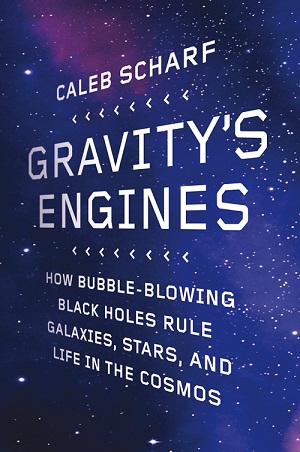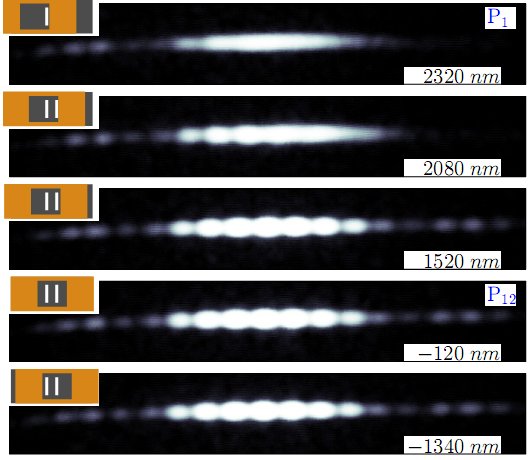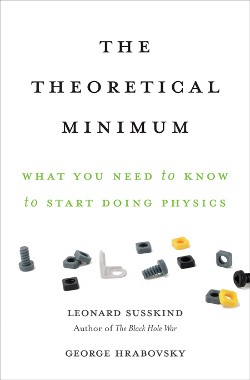For something related to the book-in-progress, I was reading Raymond Chandler’s classic essay “The Simple Art of Murder” last night, and stumbled across the following quote, where he laments the number of stories in print in the mystery genre in 1950: In my less stilted moments I too write detective stories, and all this immortality… Continue reading The Trouble With Physics
Category: Physics
Gravity’s Engines by Caleb Scharf
The last week or so of silence on the blog has been due to my trip to Ohio (which was very enjoyable), and a lack of child care for the early part of this week. A day and a half home with both kids was just exhausting, but the trip was useful in that it… Continue reading Gravity’s Engines by Caleb Scharf
How Good Is My Starbucks Cup?
It’s been a while since I’ve done a post over-analyzing some everyday situation, because I’ve been too busy to do any silly experiments. We’re on break this week, though, so I took a little time Monday to bring excessive technology to bear on the critically important scientific question: how good is my insulated Starbucks cup?… Continue reading How Good Is My Starbucks Cup?
I Teach for Free, They Pay Me to Grade
Over at Unqualified Offerings, Thoreau has a bit of a rant about what students perceive as grading on a “curve”: Moreover, many students have only the foggiest idea of what a curve is. Many (though probably not all) of their high schools had fixed grading scales with fixed percentages for each letter grade. The A/A-… Continue reading I Teach for Free, They Pay Me to Grade
Hey, Ho, Ohio: Two Talks at Wright State, Thursday March 28
Kind of short notice, but if you’re in the appropriate bits of Ohio, you might be interested to know that I’m giving two talks at Wright State this Thursday. At 11am, I’m doing the Physics Department Colloquium in 202 Oelman Hall, “Talking to My Dog About Science: Why Public Communication of Science Matters, and How… Continue reading Hey, Ho, Ohio: Two Talks at Wright State, Thursday March 28
Modern Physics and Scientific Thinking
Yesterday’s big post on why I think people should embrace scientific thinking in a more conscious way than they do already (because my claim is that most people already use scientific thinking, they’re just not aware that they’re doing it) is clearly a kind of explanation of the reason behind my next book, but what… Continue reading Modern Physics and Scientific Thinking
Why Should You Think Like a Scientist?
As you may or may not know, I’m currently at work on a book called How to Think Like a Scientist. This raises the fairly obvious question in the post title, namely, why should people think like scientists? What’s the point? In a sense, this is (as Ethan Zuckerman pointed out at lunch the other… Continue reading Why Should You Think Like a Scientist?
Against Kaku-ism
I had lunch with Ethan Zuckerman yesterday, and we were talking about technology and communicating science to a mass audience, and Michio Kaku came up. Specifically, the fact that he’s prone to saying stuff that’s just flat wrong, if not batshit crazy– see this angry post from 2010 for an example. It was amusing, then,… Continue reading Against Kaku-ism
Science Kids, Fictitious Forces, and Frictionless Surfaces
SteelyKid has started to demand Sid the Science Kid videos, which of course we are implacably opposed to around here. One of the recent episodes available online was “Slide to the Side,” talking about friction. While this partakes a bit of the Feynman “Energy makes it go” problem, it was generally pretty good, and prompted… Continue reading Science Kids, Fictitious Forces, and Frictionless Surfaces
The Theoretical Minimum by Leonard Susskind and George Hrabovsky
This is the physics book that’s generating the most buzz just at the moment, by noted string theorist Leonard Susskind and George Hrabovsky, based on a general-audience course Susskind’s been running for years. It’s doing very well, with an Amazon rank in the 300’s, which is kind of remarkable for a book with this many… Continue reading The Theoretical Minimum by Leonard Susskind and George Hrabovsky





